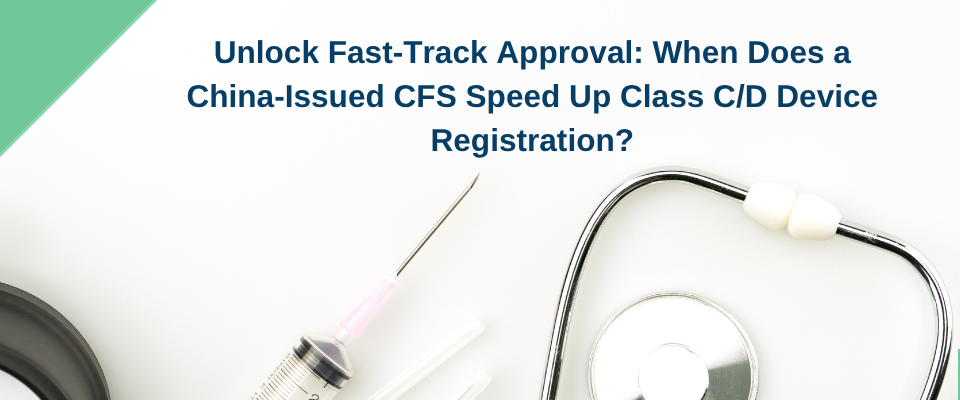- If you have any questions, please contact us!
- +84 965 624 065
- info@greennrj.com.vn
Class A Medical Devices: Simplified Import Procedures into Vietnam (2025)

Imported Cosmetic Product Registration in Vietnam 2025
June 11, 2025
Class B Medical Devices: Simplified Import Procedures into Vietnam (2025)
July 2, 2025Class A Medical Devices are essential in healthcare settings and categorized as low-risk under Vietnam’s regulatory framework. While their import process is more straightforward than for higher-risk devices, businesses still need to follow specific steps to ensure full compliance. This article guides you through the complete import procedure for Class A Medical Devices into Vietnam in 2025, covering everything from classification and declaration to customs clearance and labeling.
Note: As of July 2025, the key regulations governing medical devices in Vietnam remain Decree No. 98/2021/ND-CP and its crucial amendments from Decree No. 07/2023/ND-CP (effective March 1, 2023), along with Circular No. 05/2022/TT-BYT. Businesses should always verify the latest official legal documents, as regulations are subject to change.
Medical Device Classification in Vietnam – Class A
According to Decree 98/2021/ND-CP (as amended by Decree 07/2023/ND-CP), all medical devices — including Class A Medical Devices — must be self-classified by the importing or distributing entity. This applies to both domestic and foreign businesses operating in Vietnam. Entities must follow the Ministry of Health’s classification guidelines and take full legal responsibility for the accuracy of the classification.
Class A devices are considered low-risk and include items like bandages, surgical gloves, manual wheelchairs, and basic thermometers. Although businesses are allowed to classify their own products, they must strictly follow the Ministry of Health’s classification rules and use the official list of device types as a reference.
The classification result is a required part of the dossier when declaring applicable standards before importing Class A Medical Devices into Vietnam. Importers and manufacturers must also take full legal responsibility for the accuracy of their classification.
Declaration of Applicable Standards for Class A Medical Devices
Following the classification step, businesses intending to import Class A Medical Devices into Vietnam must submit a declaration of applicable standards. This is a mandatory requirement outlined in Vietnam’s medical device regulations and applies to both local and foreign companies.
While not equivalent to formal registration, the declaration of applicable standards is a critical prerequisite for Class A devices before customs clearance. Once submitted, the company receives a confirmation receipt number. This declaration remains valid indefinitely, provided there are no changes to the product’s specifications, intended use, or the legal basis of the declaration (e.g., changes in relevant laws). Any such changes would necessitate a new declaration to ensure ongoing compliance. Importers are responsible for compiling and submitting a complete dossier to the Provincial/City Department of Health where their company’s head office is registered.
The dossier typically includes:
-
A completed declaration form (in accordance with Circular 05/2022/TT-BYT)
-
The device’s classification result, confirming it belongs to Class A
-
Product documentation such as user manuals and instructions for use
-
A valid Certificate of Free Sale (CFS) or equivalent document from the manufacturing country
-
Certification of compliance with a recognized quality management system (e.g., ISO 13485)
- A Letter of Authorization or Power of Attorney issued by the manufacturer or brand owner, assigning rights to the importer or authorized representative in Vietnam
- A document confirming the warranty policy of the product, or a statement that the product is not subject to warranty
Important Note for Foreign Documents: All documents issued by foreign entities, such as the Certificate of Free Sale (CFS) and the Letter of Authorization, must be legalized/apostilled by the Vietnamese diplomatic mission (embassy or consulate) in the country of origin and officially translated into Vietnamese by a qualified translation service. This ensures their legal validity in Vietnam.
Once the declaration is submitted and a receipt of declaration is issued by the Department of Health, importers may proceed with customs clearance and distribution. As Class A devices are regulated under a post-market surveillance mechanism, official approval for circulation is not required at this stage. However, all submitted documents must be readily available for inspection by authorities if requested.
Customs Clearance Procedure for Class A Medical Devices
After submitting the declaration of applicable standards and receiving the receipt number, importers can proceed with customs clearance. Import licenses are not required for Class A devices, but all documents must be consistent and ready for post-market inspection by customs or health authorities. Customs authorities require a complete and consistent set of documents to verify the legitimacy of the shipment and ensure compliance with current Medical Device Regulations in Vietnam.
The typical customs dossier includes:
-
A completed customs declaration form
- Classification Result – Class A
- Receipt of Declaration of Applied Standards – Class A
-
Commercial invoice issued by the exporter
-
Packing list detailing the contents of the shipment
-
Bill of lading or airway bill, depending on the mode of transport
- Sale contract
- Certificate of Origin (if applicable)
It is important that the product information — including name, model, and classification — remains consistent across all documents. Any discrepancies may lead to clearance delays or further inspection by customs officials.
To facilitate a smoother process, businesses should also ensure that the Vietnamese importer’s name is clearly indicated on all import-related documents, and that product labeling complies with local requirements before the shipment arrives at the port of entry.
Product Labelling Requirements
Imported Class A Medical Devices must comply with Vietnam’s labeling regulations before entering the market. If the original label does not contain all required information in Vietnamese, a secondary label in Vietnamese must be affixed. This label should provide the following mandatory information:
- Name and model of the medical device
- Name and address of the manufacturer
- Country of origin
- Name and address of the importer or authorized representative in Vietnam
- Instructions for use and relevant warnings (if applicable)
These requirements are governed by Decree No. 43/2017/ND-CP on goods labeling and Circular No. 05/2022/TT-BYT on medical device management. Improper or missing labeling may result in customs delays or penalties during post-market surveillance.
Need Assistance?
Navigating Vietnam’s medical device import procedures — even for low-risk items like Class A Medical Devices — requires a clear understanding of evolving regulations, self-classification accuracy, and compliance with post-market obligations under Decree 98/2021/ND-CP.. Whether you’re handling your first shipment or scaling operations, Green NRJ provides professional, tailored services to help you:
-
Classify and document your products
-
Prepare and submit regulatory dossiers
-
Communicate with local health authorities
-
Handle customs documentation and logistics
-
Ensure compliance with labelling and post-market obligations
📩 Contact Green NRJ today to simplify your import process and stay compliant with the latest regulations in 2025.


